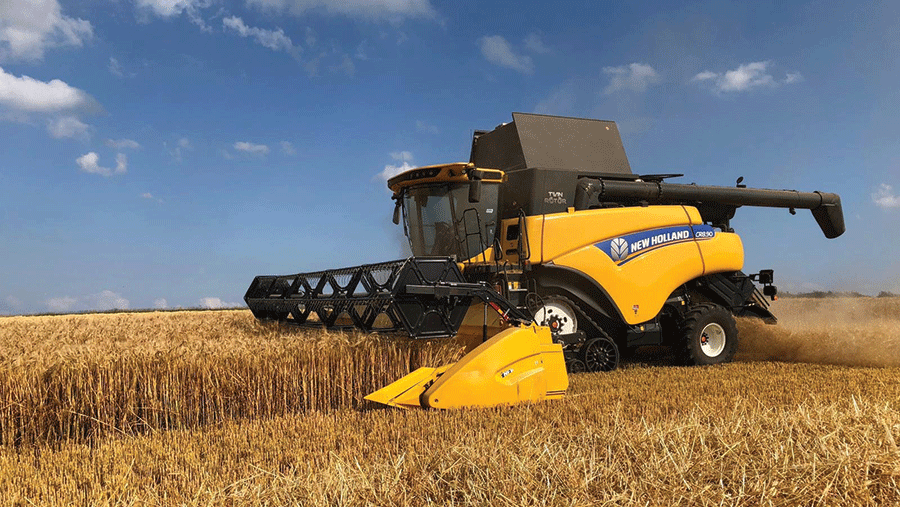Harvest 2019: Barley yield prospects rise with 10t/ha in Wales

Merchants are reporting better than expected winter barley yields as combines start to roll across southern England and Wales, with one Welsh grower reporting his best barley yield.
Philip Darke, managing director at farmer owned co-operative Camgrain said they had received their first few thousand tonnes of feed barley and that things are looking well so far.
“Varieties we have seen coming through have predominately been Funky and Bazooka, with the average yield for Funky barley between 7t and 9t/ha.”
See also: Grower slashes inputs with soils focus and variety blends
In terms of quality, there are no issues to report, he added. “We have seen an average specific weight of 65kg/hl which is fine for feed. Nitrogen content is coming through lower, and I think that this is what we are going to be seeing a lot of this year.”
Despite concerns earlier in the season over the effect the drought may have had on crops, things are looking positive, said Mr Darke. “The conditions haven’t been as dry as last year – it seems we had rain just in the nick of time.”
Looking ahead to wheat harvest, crops in the ground are looking well, he added. “In some eastern areas there has been a bit of yield loss due to the lack of rain, but overall things are looking positive.”
Norfolk
In Norfolk, samples from the lab at Dewing Grain are showing some very encouraging signs, according to chief executive Andrew Dewing.
“So far, we have mainly seen a few samples here and there on early cut crops, but most growers hung on to cut over the weekend.
“We have also had our first delivery of Craft malting barley. The sample showed nitrogen levels of 1.48% and 2.1% screenings with good bold barley grain – it is all looking very encouraging.”
Mr Dewing is optimistic about what is to come. “Possibly on the land that suffered with the drought in May, we may see a higher nitrogen content and lower yields.
However, I’m optimistic and am expecting the main bulk of crops to have reasonable yields and big, bold grains.”
While barley harvest was looking positive, there were concerns over oilseed rape in the coming weeks, he added.
“Oilseed rape has been severely affected this year with cabbage stem flea beetle, and significantly lower yields are expected. As a result, there will be less oilseed rape to trade, so things are going to be tight, but it may help the price for farmers.”
Wiltshire
Similar concerns were echoed in the west, with many farmers reporting major issues within their oilseed rape crops, according to Izzy Lawrence at Wiltshire Grain.
“Rape harvest is probably another week away. Most of our members have grown two varieties and one appears to be much more ahead of the other. The main concern for us – and our farmers – now is the anticipated reduction in oilseed rape yields.”
She added that a lot of growers had to tear up crops and start again this year because of cabbage stem flea beetle, so this is very likely to affect yield.
Wales
On the South Wales coast, harvest 2019 has just begun for Andrew Shackell, estate manager at Penllyn Estate Farm.
“We started harvesting 44ha of Sunningdale barley on Sunday and will be finished today (16 July),” he said.
“We are really pleased with the variety and the overall crop – in fact, it is the best the barley has ever performed on farm so we will definitely be growing it again.”
In terms of yield and quality, the first field cut totalled 11t/ha with the farm average sitting at around 10t/ha. Specific weights are good at 65kg/hl with a moisture content of 14%, he added.
While things are looking positive on the barley front, concerns are mounting over spring wheat.
“Things are looking very dry. I’m not holding out any hope for the spring wheat crop – we really are desperately in need of a drink,” said Mr Shackell.
Next to meet the combine will be oilseed rape, which is anticipated to be ready by the latter part of next week.

